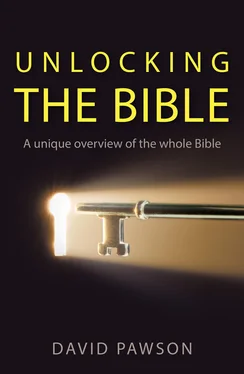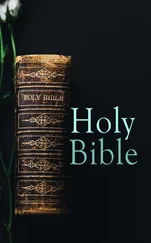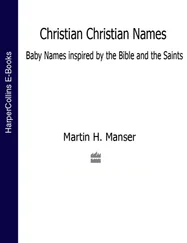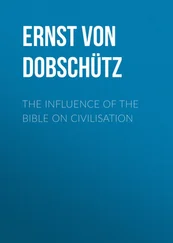3 Death: all the baby boys born to the Hebrew slaves had to be thrown to the crocodiles in the River Nile.
2. Bulrushes and the burning bush
Most people know this story well. The River Nile was full of crocodiles and this form of genocide was considered necessary by the Egyptians if Israelite numbers were to be effectively reduced. The baby Moses should have died in this way. But we note that under God’s providence Moses, like Joseph, was brought up at court and given the best education at the Egyptian university. This, of course, made him far better educated than any of the Hebrew slaves, and enabled him to write the first five books of the Bible. For the Jews Moses was the second greatest man in Old Testament – after Abraham. His time as an Egyptian prince came to a sudden end, however, when he lost his temper with one of the Egyptian slave drivers and killed him, after which he had to flee for his life.
The statistics of Moses’ life make interesting reading. At the age of 40, he spent 40 years tending sheep in the very wilderness to which he would return to live for 40 years with the people of Israel! This was clearly God’s hand at work.
Moses’ meeting with the Lord through the burning bush is also intriguing, not so much for the bush as for Moses’ excuses. God first told Moses to take off his shoes because he was on holy ground. Then he told Moses that he was going to be the man to draw God’s people out of Egypt. Moses made five excuses as to why he should not do it.
First he said he was insignificant. God said he would be with him – he was the important one. Next he said that he was ignorant and had nothing to say. God told him that he would tell Moses what to say. His third excuse was that he would be impotent to convince the people that God had met with him and told him to lead them. God said that his power was going to be with Moses and he would perform miracles. Then Moses said that he was incompetent at speaking, having a stammer which would prevent him putting words together. So God provided his brother Aaron to be his spokesman. God would tell Moses what to say and he would relay it to Aaron. Finally Moses said that he was irrelevant – please would God send someone else? But God had provided Aaron as a partner: they would work together. Each time Moses’ questioning focuses upon his weakness, and each time God has an answer.
3. Plague and pestilence
Ten plagues are mentioned in this section: the Nile turned to blood, the plague of frogs, the plague of gnats and mosquitoes, the plague of flies, the cattle disease, the boils, the hail storm, the plague of locusts, the darkness over the land and, finally, the death of the first-born.
There are a number of things to notice, and the first is that God is in total control of the insect world. God can tell mosquitoes and locusts what to do and where to go, just as he can tell frogs what to do. The plagues give a tremendous sense of God’s control over what he has created.
It is also interesting to note how the plagues increase in intensity. There is a build-up from discomfort to disease to danger to death. There is also a movement from plagues affecting nature to plagues affecting people. The afflictions gradually get worse as Pharaoh and the Egyptian people refuse to respond to the warnings. Some see the final punishment as unfair – is the killing of the first-born not far too excessive and harsh? But the Egyptians had done worse to the Israelites, killing all their baby boys, so this retribution was thoroughly appropriate.
It is easy, too, to miss the religious contest that takes place during the plagues. Every one of those plagues was an attack on a particular god worshipped by the Egyptians:
Khuum: the guardian of the Nile
Hapi: the spirit of the Nile
Osiris: the Nile was believed to be the bloodstream of Osiris
Heqt: a frog-like god of resurrection
Hathor: a mother goddess who was a cow
Apis: a bull of the god Ptah, a symbol of fertility
Minevis: also a bull, the sacred bull of Heliopolis
Imhotep: the god of medicine
Nut: the sky goddess
Seth: the protector of crops
Re, Aten, Atum and Horus: all sun gods
Pharaoh was also said to be divine
The plagues were specifically directed against these Egyptian gods. The message was very simple: the God of the Hebrew slaves is far more powerful than all your gods put together.
Some see a problem with what we are told in this section of narrative about Pharaoh’s heart. We read that God hardened Pharaoh’s heart. Some have even erected a doctrine of predestination on this passage and verses in Romans 9 where Paul talks about God hardening Pharaoh’s heart. They suggest that the passage teaches that it is up to God to choose whether he softens or hardens someone’s heart. Advocates of this view argue that we do not know why God makes these choices, but whatever the reason, in the case of Pharaoh he decided he was going to harden his heart. It is as if God picks names out of a hat and decides to save some and send others to hell, to harden some and soften others.
This is not what the Bible teaches, however. If you study the text carefully you find that Pharaoh’s heart was hardened ten times. On the first seven occasions Pharaoh hardens his own heart, in the next three God hardens Pharaoh’s heart. So God only hardens Pharaoh’s heart after Pharaoh has deliberately and repeatedly hardened his own heart. He confirms the choice that Pharaoh has made. This is the way God punishes: he helps people along the road they are determined to travel. In Revelation God says, ‘Let him that is filthy be filthy still.’ So there is no arbitrary choice about God’s dealings with Pharaoh – he hardens his own heart first and then God hardens it for him. God responds to our choices. If we persistently choose the wrong way, God will help us along that route. He will demonstrate his judgement if we refuse to be a demonstration of his mercy.
4. Feast and first-born
The tenth plague was that every first-born boy in every Egyptian family would die. This was the pivotal plague to the whole drama. The tragedy would also happen to the Jews unless they followed God’s instructions. They were to paint the blood of a lamb on their doorposts. The angel of death would come to Egypt that night and pass over the houses displaying the mark. For the other households, death would take place at midnight. Interestingly, blood is a scarlet/maroon colour, the hardest colour to see in the dark.
The blood had additional significance: the Jews were to slaughter a one-year-old ram, fully mature, and after they had put its blood on their doorposts they were to take it inside for roasting. So they were both covered by it and fed by it. When we call Jesus the ‘lamb of God’ it can suggest a softer, more docile image than the Bible intends, for he is actually the ‘ram of God’, which gives a more robust picture. The Jews were to eat the meat standing up, dressed and ready to leave at a moment’s notice. They were told to take emergency rations of unleavened bread. They were to leave Egypt that very night.
The Jews continue to keep the feast of the Passover to this day. At a particular moment in the evening, the youngest member of the family has to ask, ‘What does all this mean?’ The oldest member of the family replies, ‘This is what God did on the night when every first-born boy died and we were saved because of the blood of the ram.’ Thus they are reminded that the first-born needs to be redeemed in every generation.
5. Delivered and drowned
There are three possibilities for the route taken by the Israelites when they left Egypt, indicated on the map overleaf.
The first is known as the northern route. This suggests that they went through a row of sandbanks in a shallow part of the Mediterranean. Maps of Egypt show sandbanks marked at a place called Lake Sirbonis. Their route then takes them to Kadesh Barnea. But they could not have been followed by the Egyptian chariots across the sandbanks, so this seems unlikely.
Читать дальше











